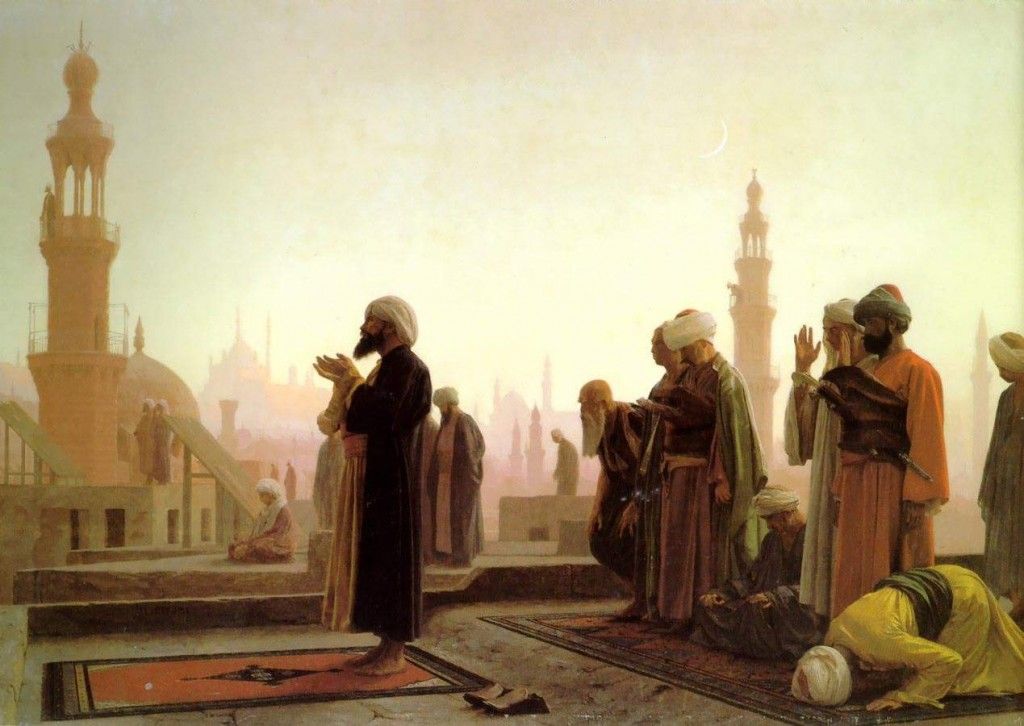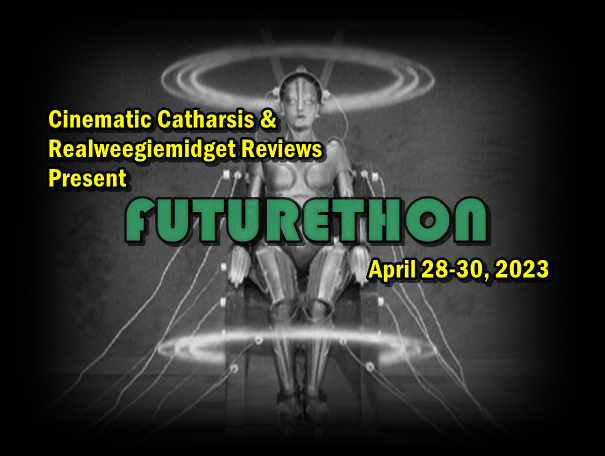The medieval future: Villeneuve's "Dune" through the lens of history.
This science fiction film set in the distant future has a lot of elements that hark back to the past.

This article, which I'm making available to my subscribers and also to everyone at large, is part of Reelweegiemidget's and Cinematic Catharsis's "The Futurethon," a movie blogathon involving writers from all over the blogosphere. This is the first blogathon participation I've done here on the Garden of Memory, though I used to do them a lot on my old (pre-2020) blog. Though the theme we're all examining is the portrayal of the future in cinema, this subject is relevant to the historical analysis to which this blog is usually devoted. Dune, the 2021 version directed by Dennis Villeneuve and based on the classic 1965 science fiction novel by Frank Herbert, is set in the distant future, but it's as evocative a depiction of the world of the Middle Ages--particularly the Islamic world--as has ever been put on film. Dune posits an interesting question I often think about in conjunction with history: what if the future of humanity is more like the past than it is like any of the ways we traditionally envision the future?
First, the movie. Dune, at least in Villeneuve's version--there was a previous film made in 1984, which I'm quite fond of for different reasons--is about the first half of Herbert's science fiction epic. (The second half is due for release in a few months, early November 2023). In the year 10,191, humanity has spread to the distant stars and space travel is made possible by ingestion of a weird substance, called "spice," that has mind-expanding properties. Spice, or melange, is found only one one planet, Arrakis, colloquially known as Dune. The story concerns Paul (Timothée Chalamet), the teenage heir to a powerful nobleman (played by Oscar Isaacs) whose family is asked to become the territorial governors of Arrakis. It's a trap, though, as Paul's family has been set up by their arch-rivals, the Harkonnen clan. After an epic battle on the arid planet, Paul and his mother Jessica (Rebecca Ferguson) must take refuge with the mystical tribe of indigenes who live in the deserts of Arrakis. This tribe, the Fremen, has a messianic prophecy about a super-being who will supposedly unite the universe, and it just so happens that Paul resembles that messiah...except to turn into one, he's going to need a lot of work.
The striking thing about Villeneuve's Dune, besides what a masterful technical and artistic achievement it is, is how retro it looks--and by retro I mean literally the Middle Ages. Though the film is full of technological devices like starships, blasters and energy shields, its visual and emotional aesthetic is straight out of the 12th century. Early in the picture we see Caladan, Paul's family's cold and stormy homeworld, and with its ancient stone graveyards and monolithic castles it sort of resembles some kingdom from Northern Europe. Once the action shifts to Arrakis, everything seems to echo the Islamic world of the Middle Ages, from the architecture of the sand-swept sets to the mystical philosophy that could have come out of one of the great caliphates that reached their cultural peak in the centuries before the Crusades. Herbert lived much of his life in Oregon but he did incorporate historical, medieval and Islamic ideas into the vastly complex back-story of Dune, which is one of the richest fields of imagination to emerge from popular science fiction just after the Golden Age of SF was ending.
In his version of the film, Villeneuve leans into the medievalism in a big way. Traditional science fiction, especially that which makes it to the screen, is traditionally set not terribly far in the future from our present-day vantage point. For some reason I never understood, the 23rd century, about 200 years hence, seemed a particularly popular time in which to set SF stories created in the late 20th century. Star Trek, Logan's Run and John Boorman's bizarre Zardoz all take place in that century; though the Alien franchise is less certain about pegging itself to a certain date, it could well be about that same time. The Buck Rogers universe of stories titled itself as taking place in the 25th century, about 400 years away. It's comparatively rare to find a SF film that goes more than 500 years out from where we are now, perhaps because it gets exceedingly difficult for popular audiences, or writers for that matter, to conceive of what human society might look like that far in the future. Dune, however, boldly goes 8,000 years ahead and dares to dream of a universe where humanity's first tentative steps into outer space are as far back in the characters' past as the Stone Age is to us. What's fascinating to me is that, imagining a world that far in the future, Villeneuve, and Herbert himself, chose to imagine a human universe that so closely resembles the Middle Ages.
Dune's universe is markedly medieval in this sense. There are ray guns, but more often characters do battle hand-to-hand with knives and daggers. The ceremonies and set-pieces that appear especially in the first half of the film, such as the arrival of the Emperor's delegation or the Bene Gesserit nuns, are steeped in tradition that seems to have been built up over hundreds or thousands of years. On Arrakis, a gardener uses precious water to feed trees that have been standing for generations, in order to maintain an important tradition. The universe itself is ruled by an emperor and controlled by families of wealth whose power and positions are passed down by heredity. Political ideology, much less democracy, seems not to be a big thing in the Dune universe, and one can easily imagine parts of it are feudal in organization. Indeed, almost all of the engines of plot or character in Dune are ideas, such as prophecies, religious teachings, or dynastic feuds. This is contrast to many lesser works of science fiction in which the agents of change and story are technological: how characters react to this machine or that one, or the implications of technology X that makes Y possible. Technology clearly did exist in the real Middle Ages, but it was far less a factor of societal change than it became in the early modern period and especially since the Industrial Revolution. Most of what changed the world between 400 and 1600 CE were ideas of one kind or another. I like that Dune works that way too.

Is our distant future going to be like this? Assuming that the human species survives its great self-inflicted wound--global warming--many thinkers consider it inevitable that we will ultimately spread out into the stars. It will have to be technological means, great ships powered by great engines, that take us there. But we today in the 21st century still think of technology in much the way we've done since the early days of the Industrial Revolution. We consider technology as always, or almost always, translating into "advancement" or "progress," and we believe technological innovation is a societal good, expected to generate greater wealth, higher standards of living and more prestigious achievements. That view of technology is relatively new, and there's no guarantee, nor indeed (I think) even much chance, that humanity will continue to have this vision of technology long-term. No one in Dune uses smart phones; no one needs them. In the universe of Dune, even computers are mostly obsolete, having been replaced instead by a class of human beings, called Mentats, who perform intellectually the functions that computers used to do mechanically. In this distant future, the power of the mind always trumps the power of the machine.
Modernity, as we define it, brings with it a certain group of assumptions. We assume that technology advances, that the present is generally better than the past, and that the natural trajectory of humankind is forward and upward. What if one, or all, of those assumptions is wrong? I like Dune's medieval retro future in part because it asks us to question those very assumptions. This is truly what science fiction is meant to do: to examine, question and interrogate the very pillars that our society rests upon, however monolithic or intractable those pillars seem to be. More than just a great story--though of course it is that too--Villeneuve's Dune translates that unspoken ethos of great science fiction onto the popular movie screen. That's not a feat that a lot of filmmakers have ever been able to accomplish.
Thanks to Gill Jacob from the Realweegiemidget blog and Barry from Cinematic Catharsis for letting me take part in the blogathon.

The Value Proposition
Why should you be reading this blog, or receiving it as a newsletter? This is why.
☕ If you appreciate what I do, buy me a virtual coffee from time-to-time to support my work. I know it seems small, but it truly helps.
📖 You could also buy my newest book.
🎓 Like learning? Find out what courses I’m currently offering at my website.
📽 More the visual type? Here is my YouTube channel with tons of free history videos.



Comments ()